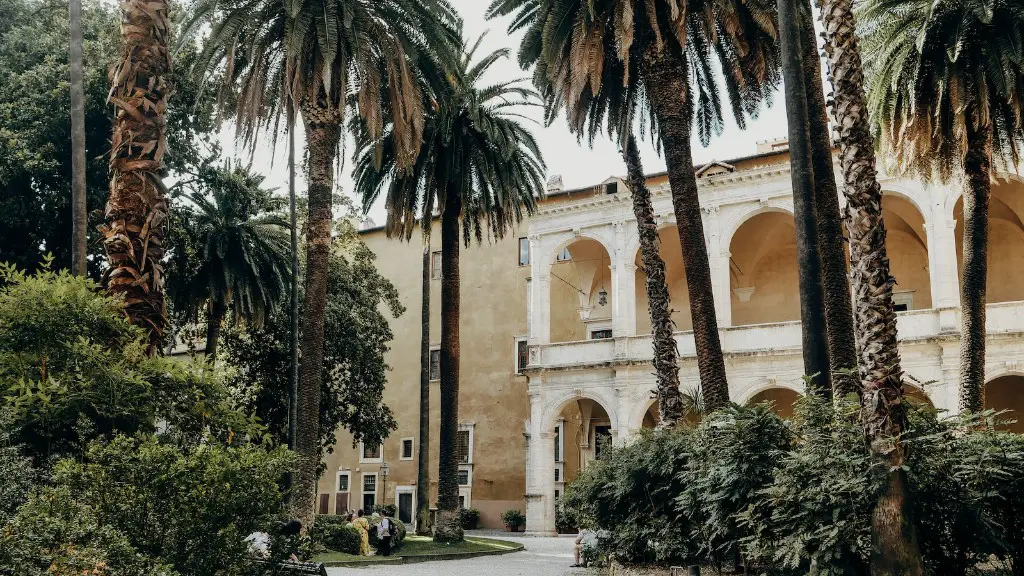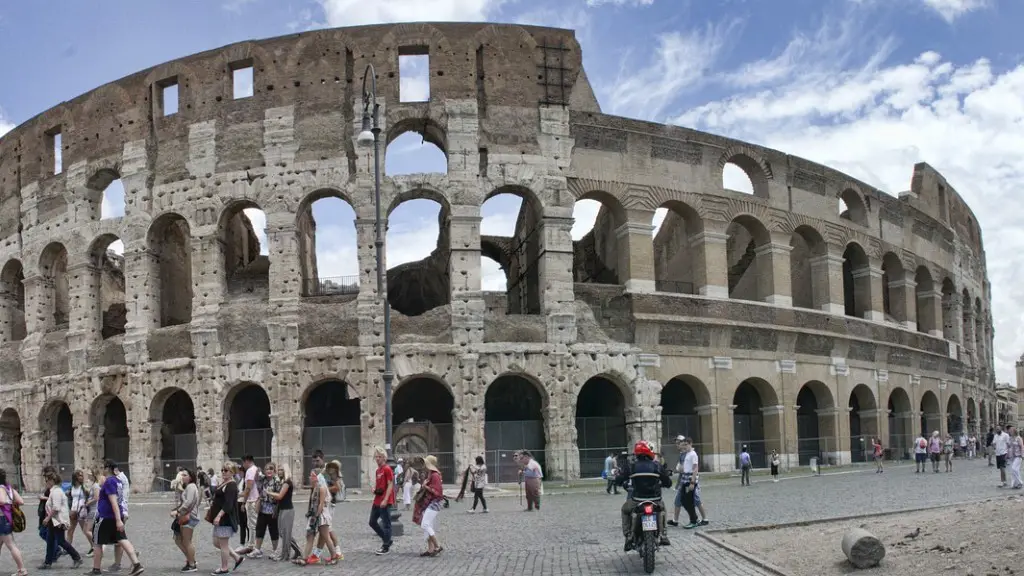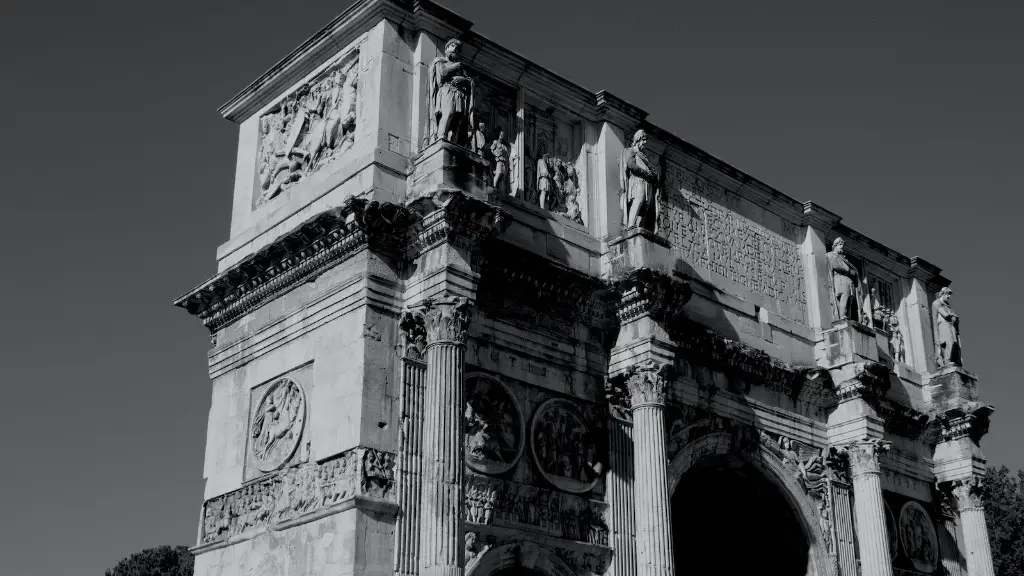What Were the Roles of Nobles in Ancient Rome?
Ancient Rome was an influential society in many ways, not least of which was in establishing a hierarchical model of nobility. Although anyone born into the noble class had specific roles, not all nobles necessarily fulfilled them, and depending on their personal qualities, some may have adapted their roles according to the circumstances of their lives. In the following paragraphs, we’ll cover what roles nobles of Ancient Rome had, and why they were so important.
In Ancient Rome, the noble class was made up of patricians – those descended from the original founders of the city. The patricians were granted privileges that were not available to the plebeians, and were seen as the equivalents of royalty. These privileges included owning land and holding political offices.
Nobles held powerful positions in the Roman government, and were often members of the Senate. As such, they were highly influential in government policy, making decisions on matters such as taxation, foreign policy, and military affairs. This was a great responsibility, and at the same time provided them with considerable privileges.
Due to their privilege, nobles were expected to serve as magistrates and generals. Magistrates were responsible for ensuring all legal matters were in order, such as land disputes or marriage settlements, while generals oversaw military activities. Nobles were also responsible for providing the Roman army with resources and personnel, making them incredibly valuable to their country.
Aside from political responsibilities and military matters, Roman nobles also fulfilled other important roles. They represented their family’s honor and prestige and wielded significant social power. They weren’t just rulers, but most were actively involved in Roman culture and promoted art, literature, and philosophy.
Roman nobles were also representatives of their city and acted as honest arbiters of justice. They were expected to act nobly and impartially in disputes, and their decisions were seen as both authoritative and honorable.
Nobles in Ancient Rome: Social Characteristics
In Ancient Rome, nobles had specific social characteristics to fulfill their responsibilities as a member of the patrician class. Nobles were expected to behave in accordance with their social standing, to earn the respect and loyalty of the people.
In terms of appearance and dress, a nobleman would dress in a manner befitting his rank, often wearing an outer garment called a toga. This was usuallymade of expensive fabric and would be white or purple, depending on the occasion.
Furthermore, a noble was expected to have the necessary knowledge, skills, and expertise to make important decisions. They were expected to have an understanding of Latin, law, politics and political systems. Also, they had to have the skills and knowledge to effectively represent their city in foreign affairs and provide sound counsel in matters of state. Nobles were also expected to have a certain level of physical fitness, education, and good character in order to gain the respect of their subjects.
Nobles in Ancient Rome: Economic Characteristics
As privileged members of the patrician class, noble families had economic advantages that other classes did not have. This included the right to own land, which often led to a family becoming wealthy and powerful.
Nobles did not have to work for a living, although they were still expected to contribute to the economy. Some nobles became successful merchants and traders, engaging in domestic and foreign trade. They also had the right to collect taxes from the people and make investments.
The families of nobles were able to afford the finest luxuries, such as costly garments, jewelry, and art. Wealthy nobles often employed numerous staff to take care of the estate, giving them ample free time.
Nobles in Ancient Rome: Religious Characteristics
Nobles were expected to be more religious than other classes in Ancient Rome. In fact, the religious life of the patrician class was very important; nobles were obligated to make offerings to the gods in return for their social position.
Nobles were also responsible for keeping the religious calendar, and during major public festivals, they were expected to dress in costume and participate in ceremonies. Additionally, many nobles held senior positions in religious cults, such as those of the Vestal Virgins.
Nobles also had the responsibility of making sure that public cults remained operational. This included overseeing the upkeep of temples, organizing feasts, and representing the gods in religious ceremonies.
The Legacy of Nobles in Ancient Rome
The nobility of Ancient Rome is no longer in existence, and the social structures it engendered have changed significantly over the centuries. However, despite the passage of time, Romans were able to create a unique class system that has left an indelible mark on the world.
The legacy of the nobles of Ancient Rome is both tangible and intangible, as many of their core principles still exist today. Their ideas on justice and equality continue to shape global societies, and their legacy continues to be studied and interpreted from a modern perspective.
Influence of Nobles in Ancient Rome on Other Societies
Nobles in Ancient Rome not only left an impact on the Roman Empire but have also had a lasting influence on other societies. For instance, many cultures in the Mediterranean have adopted some of the Roman ways of governing their societies by incorporating some of the titles, customs, and laws of Ancient Rome, including those originally related to nobility.
Modern European monarchies, for instance, derive their legitimacy from the laws, privileges, and rights that were originally given to patricians of Ancient Rome by their respective families. In the same way, titles such as ‘Lord’, ‘Duke’, and ‘Count’ have a direct link to the Ancient Roman system, indicating a social standing that was derived from heritage or a family’s influence.
In addition, many of the nobles in Ancient Rome managed to accumulate large fortunes through land ownership. This has been a major source of wealth for many noble families throughout European history, with many modern families still relying on the legacy of their Roman forebears.
The Impact of Roman Nobles on Education and Literature
Nobles in Ancient Rome not only had a major influence on politics and economics, but they had a profound impact on the culture as well.
In terms of education and literature, Roman noble families were known for developing schools and educating their own children. Schools were created to teach the skills and knowledge that would be necessary for the future of the young nobles. Furthermore, many Roman nobles turned to writing and education to provide a lasting legacy for their family.
The literature and art produced by Roman nobles were highly influential in other societies. Roman epic poetry, for example, was adopted by the ancient Greeks, paving the way for the development of more sophisticated literary traditions and poetic forms.
In addition, Roman nobles were also significant patrons of the arts and helped create and sustain various forms of art ranging from sculpture to painting. Not only did this serve as a source of entertainment, it was also a way to preserve and celebrate their heritage.
The Role of Roman Nobles in Society
Nobles in Ancient Rome played a crucial role in the functioning of their society. They were seen as dignified figures who held great power and influence, and who had the responsibility of upholding the law and making sure justice prevailed.
Besides their political and religious role, Roman nobles were also responsible for furthering education and the arts. Their presence in the education and literary system had a lasting impact on the cultures of other societies. Furthermore, their patronage of the arts helped create and sustain beautiful works of art that still remain today.
Nobles also had a significant economic role. They were granted rights to own land and were often wealthy, allowing them to enrich the economy with their investments and foreign trade.
The Role of RomanNobles in Upholding Family Honor
In Ancient Rome, the role of nobles was not only to serve the state and the people; they were also responsible for defending their family’s honor. This was a paramount responsibility, so much so that any insult against a noble was taken very seriously.
Nobles were expected to uphold the family’s reputation by behaving in an exemplary manner and displaying probity in all their actions. If there were any stains on the family name, they had to make sure it was rectified. Furthermore, their decisions and actions were expected to be considered and wise; they were expected to be rational and impartial when making decisions.
Given the fact that the family name was of paramount importance, noble family members had to make sure that their deeds lived up to the expectations of their peers.
Conclusion of Roman Nobles in Ancient Rome
Nobles in Ancient Rome were an important part of society. They were in charge of making important decisions, representing their families, and upholding their family honor. They also were responsible for furthering education and culture, and for patronizing the arts. Furthermore, they had significant economic privileges and could accumulate wealth through land ownership and investments. The legacy of the noble class of Ancient Rome continues to be studied and honored today.


